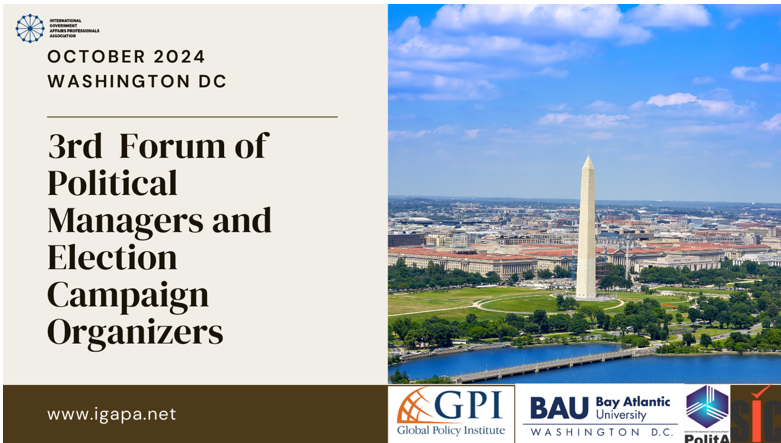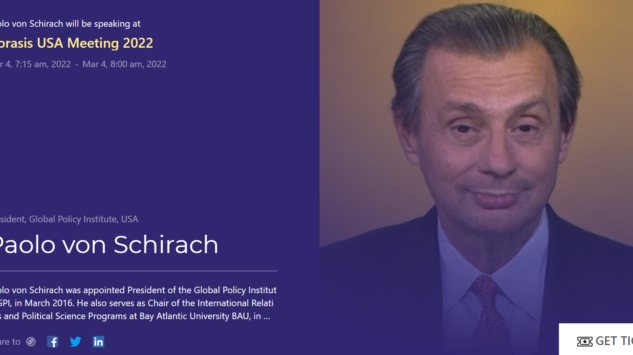-
Poland Will Be the New NATO Abrams Tank Center for Sustainment and Co-Production
By Merrick "Mac" Carey - October 21, 2024 - The first of the Polish Army’s 250 new M-1 Abrams V3 tanks, the most modern version, will soon be delivered to that stalwart East European ally. Those combat vehicles will focus the Polish Defense Ministry’s attention on getting a maintenance and sustainment capability in place quickly. They will need to avoid having inoperable tanks while they are urgently needed to deter potential Russian aggression. As the largest front-line NATO member on the eastern front facing Russia, Poland continues an impressive defense modernization effort which will lead to a defense budget of 4.7% of GDP next year. That is the largest GDP percentage in the Atlantic alliance, including America. Poland is buying top of the line jet fighters, helicopters, air defense and armor in a relentless and expensive military buildup. There will be real challenges assimilating all this high-tech gear. Poland’s government, military and industrial leaders will need to move fast.
Read more -
GPI-BAU Talk Series: HIST 180 – Classical Islamic Civilization & the Silk Road
On October 23, 2024, at 01:00 PM (EST) the Global Policy Institute (GPI) and Bay Atlantic University (BAU) will hold a talk titled " Classical Islamic Civilization & the Silk Road" via Zoom and in-person at BAU, during the HIST 180 class. Click Here to Register Speaker Dr. Hamdi Saleh is a distinguished alumnus of Harvard University with a Ph.D. in international relations. He taught at the Kennedy School of Harvard, as well as several other esteemed American universities. He was a Fulbright scholar at Florida State University in 2008. He represented Egypt diplomatically in the United States, the Gulf region, and South Africa, and has played a pivotal role in developing the relationship between Egypt and the United States. Currently an advisor for the University of Port Said, Dr. Saleh is conducting a program for political consultation between the Middle East and the United States. He is a senior news commentator on Arab and American Television Networks, and has published several books and articles, the latest entitled “America at a Cross Road: The Election of Obama to the White House” (2009).
Read More and Register -
Strike at Boeing Hits USAF KC-46 Tanker, Supply Chain
By Rebecca L. Grant, Ph.D. - October 16, 2024 - With the strike at Boeing entering a second month, what about the impact on national security? On Monday, President Joe Biden dispatched Acting Secretary of Labor Julie Su to Seattle for the first in-person meeting between a government official and the two parties. Su’s mandate was to “encourage both parties to move forward in the bargaining process,” according to a Labor Department spokesman. Washington, DC is getting worried, and rightly so. Back on September 13, Boeing and the International Association of Machinists and Aerospace Workers failed to reach an agreement. Boeing offered a 25% pay increase over four years and has since raised the offer to 30%. The union is seeking 40%.
Read more -
3rd Forum of Political Managers and Election Campaign Organizers
We are excited to announce the third Global Forum for Political Consultants and Political Management, is happening today, October 15th, 2024, in Washington, D.C. This prestigious event gathers top professionals, experts, and enthusiasts in the fields of political consulting, campaign management, and political communication. Organizers: IGAPA, Bay Atlantic University, Global Policy Institute (GPI), SIC Group USA LLC, Institute for Democracy and Development “PolitA” Who Should Attend: Political consultants and strategists Campaign managers Public relations and communication specialists Academics and students in political science and related fields Government officials and policymakers Media professionals covering politics and elections
Read More -
6 Ways Iran Could Strike U.S. in the Mideast or Here at Home (from Fox News)
By Rebecca L. Grant, Ph.D. - October 10, 2024 - As I wrote for FOX News today, Iran’s terror goons are in crisis mode right now. Having seen their missile attack on Israel fail yet again due to Israel’s powerful defenses, Iran is now expecting an Israeli counterstrike. “There will be severe consequences for this attack, and we will work with Israel to make that the case,” National Security Advisor Jake Sullivan said on Tuesday, October 1. All the G7 nations agree Israel has the right to strike back, President Joe Biden added Wednesday. Iran wants blood. But they are running out of options. More than 40,000 U.S. forces were already deployed to U.S. Central Command in the Middle East, in locations from Syria to the Red Sea. Three more squadrons of F-15Es, F-16s and A-10s are on the way to U.S. Central Command, joining stealth F-22s, F-35s and others already in the region. The aircraft carrier USS Abraham Lincoln is launching jets day and night and the USS Wasp, with a Marine Expeditionary Unit aboard, is in the eastern Mediterranean. The submarine USS Georgia, carrying 154 Tomahawk land-attack cruise missiles, is nearby too, along with a bevy of U.S. Navy destroyers.
Read more -
Solar Electrical Power from Fabrics?
By Paolo von Schirach - October 7, 2024 - How about a tent that produces the electricity necessary to satisfy the needs of campers or field hospitals? Pvilion, a U.S. company based in Brooklyn, New York, can make them for you, following your specifications in terms of size and preferred material. Is this the new frontier of solar energy applications? When we think about renewable energy, we generally think wind and solar. These days, solar panels are very popular. We can have a large number of them, arranged in rows, and this becomes a large solar power plant connected to the electric grid that can supply enough electricity to satisfy the power needs of thousands of homes. Or we can have some panels on the rooftops of individual structures, commercial buildings, or homes, that will satisfy the electricity needs of those buildings.
Read more -
Electric Airplanes for Short Flights in America?
By Paolo von Schirach - October 3, 2024 - Unlike in Europe, Japan or China, in America passenger railways have been neglected. While this may change in the future, at this time there are no fast trains networks. The only exception is the “Eastern Corridor” (Washington, DC – New York City – Boston) that is served by semi-fast trains. For the rest of the large country, to travel from point A to point B Americans have essentially two choices: drive or fly. However, large commercial carriers do not fly to small cities. And here is the business opportunity for innovators who are busy producing short haul electric airplanes that would fly short distances relying on a vast network of underutilized small airports. In the U.S. there are several airplane manufacturers in this new space. Among them: Beta Technologies, Joby Aviation, Archer Aviation, Airflow, and Pyka, all of them California based. But big giants like Boeing and Airbus in Europe are also working on their electric planes' prototypes.
Read more -
Water Used in Hydraulic Fracturing is Now Recycled
By Paolo von Schirach - October 1, 2024 -Hydraulic fracturing, better known as fracking, is the phenomenal technological innovation that unleashed a U.S. boom in the production of oil and gas. Until a couple of decades ago, most energy experts agreed that America had practically exhausted most of its known oil and gas reserves. This new reality presented an enormous economic challenge for the biggest hydrocarbons consumer in the world. Billions of dollars had to be spent every day to pay for vitally important imported oil and gas. Besides, this dependence on foreign suppliers of a critical commodity presented an enormous new national security risk. How could the U.S. economy survive in case of major oil and gas flow disruptions caused by conflict?
Read more -
Poland’s Secret Weapon Goes Beyond Abrams Tanks (From RealClearDefense)
By Rebecca L. Grant, Ph.D. - September 30, 2024 - Poland has a secret weapon. No, not just the Abrams main battle tanks, F-35 stealth fighters, Patriot air defenses, Apache helicopters or other top-line equipment purchased by Poland. Poland’s secret weapon centers on its intense national commitment to security against a resurgent Russia – and the favorable American opinion this inspires. That’s why Polish Foreign Minister Radoslaw “Radek” Sikorski is making a national security sweep from Washington, DC to the United Nations to Polish communities in Pennsylvania and an armored vehicle plant in Michigan. “Russia is and for the foreseeable future will remain a danger,” Sikorski said in an address at Johns Hopkins School of Advanced International Studies (SAIS) in Washington on September 20.
Read more -
First-Ever ‘China Week’ Takes Aim At America’s Dependence On Beijing (From Fox News)
By Rebecca L. Grant, Ph.D. - September 27, 2024 – The China fight is on. Read my FOX Opinion piece here. ICYMI, last week the House of Representatives passed stepped up to the Herculean task of passing 25 bills targeting Chinese intrusions into America’s economy and technology. This first-ever “China Week” took aim at drones, bad Chinese network routers, batteries and federal biotech contracts with Chinese firms. “House indulges in Mad Hatter’s Tea Party,” screamed state-run China Daily on Thursday, lamenting “40 years of mutually beneficial relationships. Seriously? Rep. John Moolenar, R-MI, Chairman of the House Select Committee on China, put it clearly. “This week, we will draw a line in the sand. With one voice, the U.S. Congress will tell Xi Jinping, this far, and no further,” he said.
Read more















